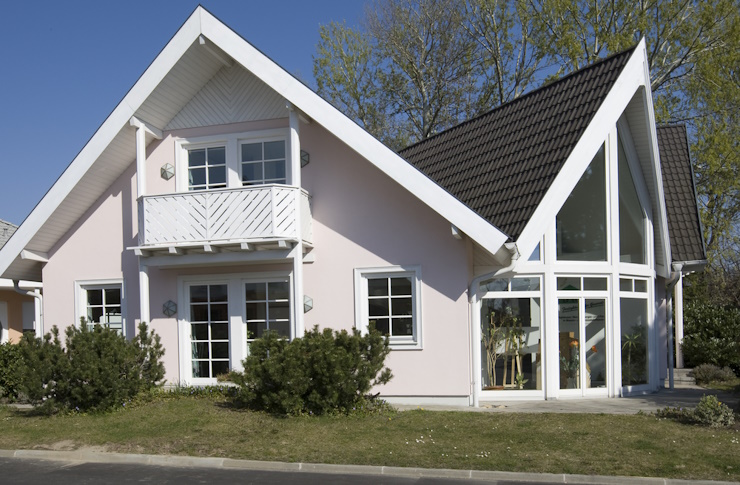Custom Garage Doors: A Comprehensive Guide to Elevating Your Home's Exterior
Custom garage doors are designed to match architectural styles and functional needs. Options include materials like wood, steel, or aluminum, with features such as insulation, windows, and automatic openers to combine design and practicality. Read to learn more about custom garage doors.

Understanding Custom Garage Door Materials
Custom garage doors come in a variety of materials, each offering distinct advantages and aesthetic qualities. Wood remains a popular choice for homeowners seeking warmth and classic appeal. Cedar, redwood, and mahogany are prized for their natural beauty and durability when properly maintained. Steel doors offer exceptional strength and security while requiring minimal maintenance, making them practical for many climates. For corrosion resistance in coastal areas, aluminum doors present a lightweight alternative that won’t rust. Composite materials combine the appearance of wood with enhanced durability and weather resistance, while glass panels create a contemporary look that allows natural light to enter the garage space. Your material selection should consider your local climate, maintenance preferences, and architectural style.
Design Options for Custom Garage Doors
The design possibilities for custom garage doors extend far beyond basic functionality. Carriage house styles evoke traditional charm with decorative hardware and swing-open appearance, though they operate as modern overhead doors. Contemporary designs feature clean lines, minimalist hardware, and often incorporate glass panels for a sleek aesthetic. Mediterranean-inspired doors with wrought iron accents complement Spanish or Italian architectural styles, while craftsman designs showcase quality woodworking with distinctive panel configurations. Many homeowners opt for unique panel arrangements, window placements, or decorative hardware that reflects their personal style. Custom colors and finishes allow for perfect coordination with your home’s exterior palette, creating a cohesive look that enhances curb appeal.
Technical Aspects of Custom Garage Doors
Beyond aesthetics, custom garage doors offer tailored performance features to meet specific needs. Insulation options vary from basic polystyrene panels to high-R-value polyurethane foam that significantly improves energy efficiency, particularly for attached garages or spaces used as workshops. Window configurations can be customized for privacy, light transmission, and decorative effect, with options ranging from frosted glass to intricate designs. Hardware selection, including handles, hinges, and tracks, impacts both appearance and functionality, with premium options offering quieter operation and enhanced durability. Modern custom doors can integrate advanced security features like smart locks, cameras, and programmable access codes, while specialized sizing accommodates unique architectural requirements or special vehicles like RVs.
The Custom Garage Door Process
The journey to obtaining a custom garage door typically follows a structured process. Initial consultation involves meeting with a specialist to discuss your needs, preferences, and budget constraints. Design development then translates these requirements into detailed specifications, often using software to visualize the final product. Material selection follows, with samples often provided to ensure satisfaction with textures and colors. Professional measurement ensures precise fit, accounting for headroom, side room, and other structural considerations. After manufacturing, which may take several weeks depending on complexity and materials, professional installation completes the process, typically requiring 4-8 hours for a standard residential garage.
Benefits of Investing in Custom Garage Doors
Custom garage doors offer significant advantages over standard options. Perhaps most notably, they provide distinctive curb appeal that sets your home apart while complementing its architectural character. This enhanced aesthetic often translates to increased property value, with studies suggesting up to 85% return on investment for upscale garage door replacements. Energy efficiency improvements through better insulation and sealing can reduce heating and cooling costs for attached garages. Custom doors also allow for improved functionality tailored to your specific needs, whether that means wider openings for large vehicles or specialized access features. Additionally, the ability to select higher-quality materials and hardware often results in greater durability and lower long-term maintenance requirements compared to standard doors.
Custom Garage Door Pricing and Options Comparison
Custom garage door pricing varies significantly based on materials, size, design complexity, and additional features. Understanding the cost ranges helps with budgeting for this significant home improvement.
| Material Type | Average Price Range (8x7 door) | Key Features | Typical Warranty |
|---|---|---|---|
| Wood (Cedar/Redwood) | $3,000 - $10,000+ | Natural beauty, insulation properties, unlimited design options | 1-5 years |
| Steel | $1,500 - $4,000 | Durability, low maintenance, good insulation options | 10-20 years |
| Aluminum | $2,000 - $5,000 | Rust-resistant, lightweight, modern appearance | 5-15 years |
| Composite | $2,500 - $6,000 | Wood-like appearance, weather resistance, low maintenance | 15-20 years |
| Glass & Aluminum | $4,000 - $12,000 | Contemporary design, natural light, customizable opacity | 5-10 years |
Prices, rates, or cost estimates mentioned in this article are based on the latest available information but may change over time. Independent research is advised before making financial decisions.
Maintenance Considerations for Custom Garage Doors
Proper maintenance ensures the longevity and performance of your custom garage door investment. Wood doors require the most attention, typically needing refinishing every 2-3 years to prevent warping and rot. Steel and aluminum options demand less upkeep but benefit from periodic cleaning and lubrication of moving parts. All door types should have their hardware, springs, and operating mechanisms inspected annually for safety and optimal performance. Many manufacturers provide specific maintenance guidelines for their custom products, which should be followed to maintain warranty coverage. Some high-end custom door providers offer maintenance plans that include regular professional servicing, particularly valuable for complex designs or specialized materials.
Ultimately, custom garage doors represent an opportunity to transform a purely functional element of your home into a distinctive design feature that enhances both value and daily enjoyment. By understanding the available options and carefully considering your priorities, you can create a garage door solution that perfectly balances appearance, performance, and longevity.




